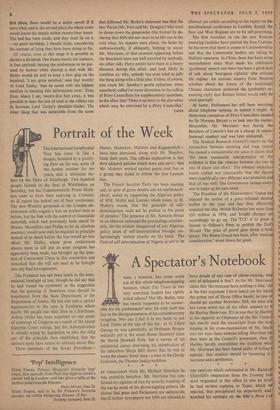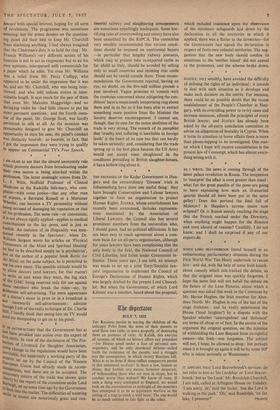THE PROCESS which culminated in Mr. Randolpl Churchill's resignation from
the Evening Stall dard originated in this office (it was an artier he had written replying to Taper, which wa rejected, that precipitated his departure); and I watched his apologia on the BBC's Press Cog Terence with special interest, hoping for all sorts of revelations. The programme was sometimes amusing; but the prima donnas on the question- ing panel did their best to keep Mr. Churchill from disclosing anything. I had always imagined that the Chairman's duty is to hold the ring : Mr. Francis Williams's very different notion of his function is not to act as ringmaster but to air his own opinions, interspersed with commercials for a paper which he edits. Yet even Mr. Williams was a relief from Mr. Percy Cudlipp, who appeared to be under the impression that it was he, and not Mr. Churchill, who was being inter- viewed; and who told tedious stories at inter- minable length. It says much for the pair of them that even Mr. Malcolm Muggeridge—and no shrinking violet he—had little chance to put his more pertinent questions : and the fourth mem- ber of the panel, Mr. George Scott, was hardly permitted to talk at all. As the occasion was presumably designed to give Mr. Churchill an opportunity to state his case, the panel's conduct was distinctly boorish : so boorish, in fact, that I got the impression they were trying to qualify to appear on Commercial TV's Free Speech.















































 Previous page
Previous page